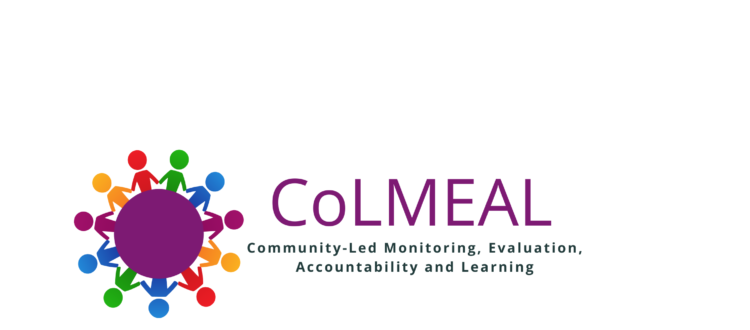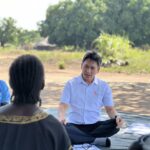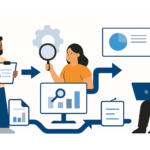Webinar Series: Community-Led Monitoring, Evaluation, Accountability and Learning (CoLMEAL)
Webinar #1: What is CoLMEAL?
Salanga has been partnering with Global Affairs Canada (GAC) and ADRA Canada to innovate on Community-Led Monitoring, Evaluation, Accountability and Learning (CoLMEAL). We have been piloting this approach in countries in Africa and Asia, including fragile and vulnerable contexts, by building the capacity of community change agents to develop, implement, monitor and evaluate their own theories of change to achieve sustainable changes in well-being.
Thanks to everyone who joined Salanga and ADRA Canada for our free webinar during International Development Week on What is CoLMEAL?
This 1 hour webinar introduces the concept of CoLMEAL, we share our definition of CoLMEAL and its key principles.
The Context
Sustainable Development Goal (SDG) #16 calls for building participatory, effective, accountable institutions “at all levels”. In order to ensure the SDGs are sustainable, the people who are most affected by their community’s development should be drivers of their change. Thus any information gathered should first be owned and used by those who are impacted the most. New ways of working are needed to support the decolonization of development, including monitoring and evaluation. Frameworks and tools that support true participation, grassroots innovation, and empowerment of vulnerable communities will help to catalyze this process.
Facilitated by:
Elaine Stavnitzky is a Program & CoLMEAL Advisor at Salanga. She is passionate about CoLMEAL and has been instrumental in the development of the CoLMEAL approach. She is an experienced leader, having implemented a wide range of complex strategic, programmatic and quality assurance processes to support leadership, staff, communities and children in international development and humanitarian aid programs since 2002. The nexus of her passion, skills, and value is in empowering communities to understand and monitor the change they seek to actualize. She is ever ready to apply her energy and enthusiasm to support organizations in strengthening systems that ensure people have right-sized information to trigger change making decisions. She loves experiencing with others the “a-ha” moment that tips the balance for transformation at the individual, community and/or systems level.
Introductions by:
Analynn Bruce is the Development Program Director at ADRA Canada and has spearheaded the piloting and integration of CoLMEAL in ADRA’s GAC-funded projects in Africa and Asia.
Jakub Nemec is the founder of Salanga and passionate about supporting organizations to shift the power dynamic in MEAL and empower communities with the tools to measure success on their own terms.
About Salanga
At Salanga, we inspire and enable people and organizations to improve their practices, so they can make positive and sustainable change in our world. Salanga is a values-driven organization that provides technical expertise, tools, training and MEAL software to humanitarian, development and social service organizations around the world. We are a unique international development and technology focused company. We bring a tech-savvy side and hold core expertise in database design and implementation specifically for the humanitarian, development and social sector. Our monitoring and evaluation staff have over 15+years of experience in designing and implementing enterprise-level monitoring, evaluation and learning database systems.
Salanga works with organizations to write proposals, strengthen their projects and MEAL systems and is the proud founder of Kinaki a cloud-based MEAL software. Any organization or individual can signup for a FREE Kinaki account.
About ADRA Canada
ADRA Canada is part of the global ADRA network, the official humanitarian and development arm of the Seventh-day Adventist Church. In order to break cycles of extreme poverty and bring about lasting, positive change, it is necessary to commit to long term, integrated and participatory interventions that bring about equitable access to water, sanitation, health, food and nutrition, education and income opportunities. To achieve these goals, we engage the targeted rights-holders, and collaborate with community-based organizations, local governments and opinion leaders, ADRA network offices, local partners and other organizations. Together, we work to empower communities where hope, justice, compassion and love thrive.




